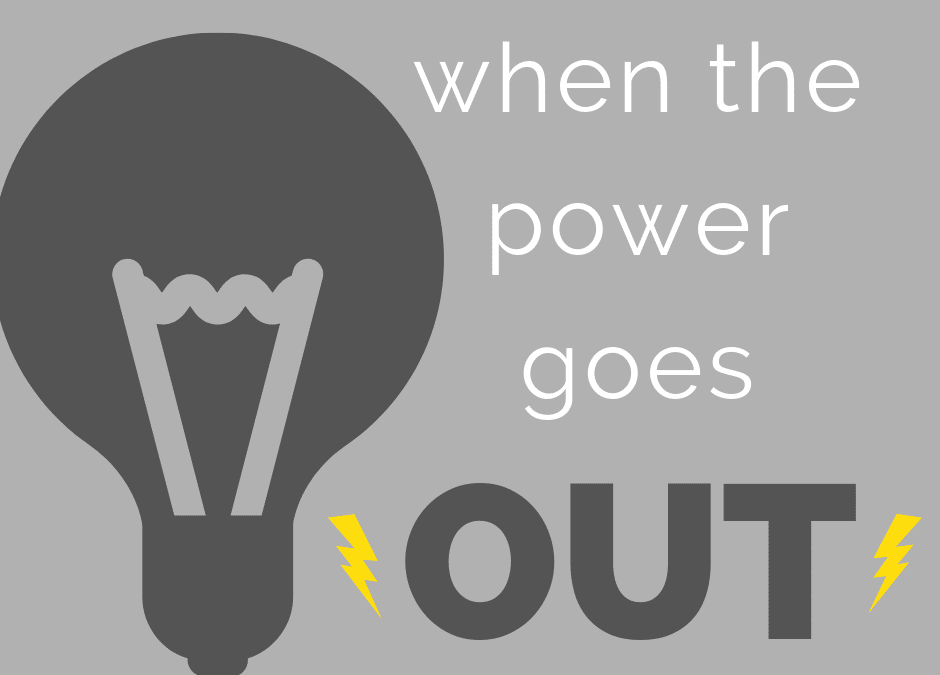California utility companies are taking drastic steps to prevent wildfires by cutting power to up to one million households. Downed power lines or sparks during high winds and red flag fire warnings have been blamed for starting previous fires. The outages could last for days, depending on the fire threat. generator safety tips
Blackouts may reduce fire danger, but losing power can be frustrating and even life-threatening. Utility companies are urging customers to have an emergency supply kit and keep automobiles with a full tank of gas (in case gas stations in the area are without power). Also, you should have an emergency plan if someone depends on electricity for medical needs. It’s important to know how to manually open up garage doors and community gates if the power is out.
Here are some hacks that can make weathering a lack of electricity a little easier:
- Strap a headlamp facing into to a clear plastic jug filled with water to light an entire room.
- Keep a bag of stuffed animals, games and toys that don’t require electricity to occupy and entertain children.
- Turn cell phones off or to airplane mode to extend the battery life and have extra power packs or solar chargers.
- Fill your washing machine with ice to make a great cooler with a drain.
- Have a propane or briquette grill or camp stove with fuel for cooking (never use it indoors and make sure to have extra fuel or bags of briquettes).
- Store milk jugs with frozen water in your freezer to be used to keep food cold and for drinking water when the ice melts.
- Stock up on candles, or make your own from your kitchen.
- Use boxes of baby wipes if showers don’t work.
- Consider installing or buying a standby generator.
Portable generators can power heaters, water pumps and refrigerators. However, while it can light your home and make life a little more comfortable, using a portable generator can also be dangerous.
Whether you have used it once or a hundred times, it’s good to know these generator safety tips to prevent carbon monoxide poisoning and fires:
- Never use a generator inside your home or enclosed areas like a garage – fatal fumes from the engine can build up inside.
- Keep it away from open windows, vents and doors to keep dangerous fumes from entering your home.
- Install battery operated carbon monoxide detectors to warn if the exhaust is seeping into your home or shelter.
- Avoid fires: gasoline and natural gas generators create a lot of heat and can cause nearby combustibles to burn. They need to be cooled for a few minutes before adding more fuel.
- Never plug the generator directly into a home’s outlets – it can cause a dangerous “back-feed” on the power grid that can harm utility workers and others working on or repairing power lines.
- Avoid using generators that are wet or in puddles because they can cause electrocution.
- Only use heavy-duty electrical cords with portable generators that are rated for outdoor use, and make sure they are uncoiled.
It’s also a good idea to have flashlights or lanterns (with extra batteries) on-hand during a power outage. Additionally, keep an emergency kit that contains enough canned food and water to keep your family fed and hydrated for up to a week. This includes extra blankets and warm clothes, and a battery operated or crank radio to keep you up to date on emergency response and repairs.
California Casualty cares about your safety. We have numerous home safety information links available at www.calcas.com/resources.
For more information visit:
https://bit.ly/2VrmlZL
https://bit.ly/33d8CIs
https://bit.ly/2MwSkU6
This article is furnished by California Casualty, providing auto and home insurance to educators, law enforcement officers, firefighters, and nurses. Get a quote at 1.866.704.8614 or www.calcas.com.
- Graduation – When to Remove Your Child from Your Auto Policy - May 18, 2023
- How to Prevent Catalytic Converter Theft - May 17, 2023
- How Much Does Home Insurance Cost? - May 17, 2023

